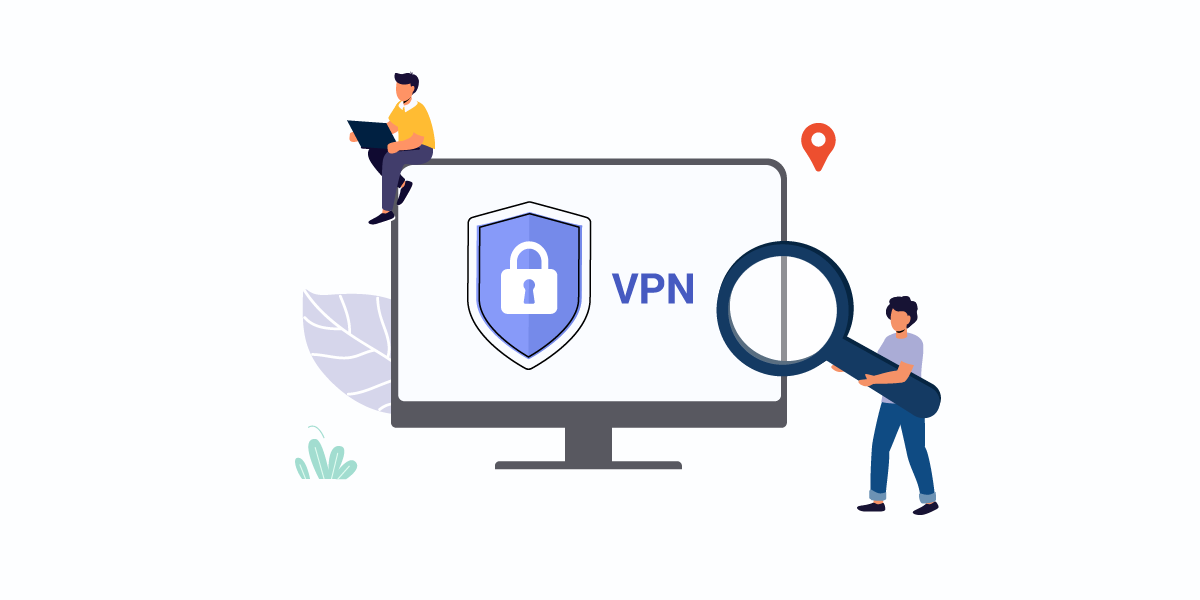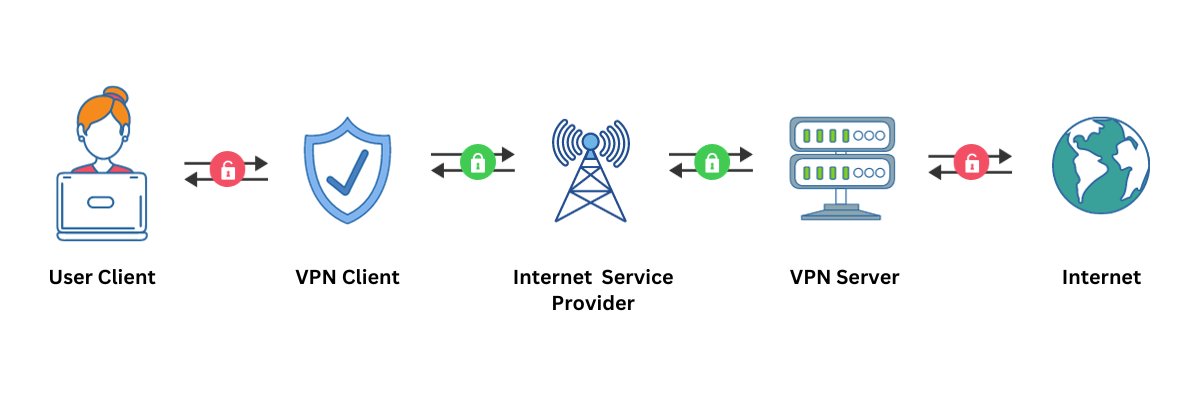
A Virtual Private Network (VPN) is a technology that provides a secure and encrypted connection connection between a client and the remote network via the Internet. People often use VPN for privacy and security purposes.
Transmitting sensitive data through the public Internet Wi-Fi hotspots is inherently dangerous due to the possibility of unauthorized persons capturing the data. VPNs are often used on public Wi-Fi networks to safeguard sensitive information from potential hackers who might be eavesdropping on the network. On top of that, banks and financial organizations often advise their customers not to perform any monetary transactions when using free Wi-Fi networks.
To mitigate this security concern, users can utilize a VPN when performing financial or sensitive transactions. A VPN is also frequently used to allow the user access to geo-restricted contents like music or software.
How does a VPN work?
VPN will create a digital connection between the device and the remote server owned by the VPN provider. A secure point-to-point tunnel will be created over the Internet. Data is encrypted before being transmitted through the tunnel mechanism.
Once a VPN connection is established, any data transmitted by the client machine will be routed through the tunnel to the VPN network. The VPN network will then forward the data to the recipient machine. That’s why VPN is considered a type of proxy server.
To the recipient machine, it looks like the data is coming from the VPN network, not the client machine. So, by using a VPN that is located in a different country, users can bypass geo-fencing for online music, streaming video, etc.

Types of VPN
Site-to-site
A site-to-site VPN connects multiple networks together. This type of VPN is typically used by companies which have multiple offices in different geographical locations. With such a VPN, client machines from the connected networks can communicate with each other, as though they are located in the same local network.
Remote access
A remote access VPN allows a user to connect to a private network such as a company’s network, from any remote location. Normally, the employees will use this type of VPN to access their company resources that are located within the private network. A VPN helps to maintain employee productivity even when not in office, making it absolutely vital during the pandemic with everyone working from home.
Security mechanism
The security mechanism of VPN involves a set of technologies that will protect the data transmission on the network. Thanks to the security mechanism, hackers or unauthorized people will have a harder time to capture the data for their own interests.
Tunneling protocols and encryption work hand-in-hand to provide the mechanism for making secure data transmission via VPN.
IPSec
Internet Protocol Security (IPSec), is developed to meet the crucial goals of data security, which are availability, integrity and confidentiality. IPSec encrypts the data by encapsulating the data packet inside an IPSec packet before transmission.
Then, when the IP packet reaches the end of the tunnel, the de-encapsulation process will happen. The original data packet will be decrypted and then sent to the destination.
TLS/SSL
Transport Layer Security (TLS) and Secure Socket Layer (SSL), are the two alternative types of security protocols to encrypt data communication inside the tunnel. In VPN, TLS is the more commonly used encryption protocol to secure an individual connection.
L2TP/PPTP
Layer 2 Tunneling Protocol (L2TP) and Point-to-Point Tunneling Protocol (PPTP) are the two common tunneling protocols for encapsulating the data packet.
Benefits of using VPN
Ensure that the data is securely transferred with encryption. Anyone snooping on the data packets will not be able to see the actual data transmitted.
Mask the end user’s IP address, making their traffic look like originating from the VPN network location. Privacy is usually the main reason that home users will surf the Internet with the use of a VPN server.
Don’t want e-commerce websites to track your shopping or browsing habits? Just use a VPN and you will be harder to track.
For corporate users, using a VPN allows them to remotely access servers located inside their company internal networks, thus preserving employee productivity while maintaining network security.
Pitfalls of using VPN
In some countries like China, it is actually illegal to use a VPN for surfing the Internet. These countries often have strict Internet monitoring laws to prevent their citizens from accessing questionable contents as well as contents deemed illegal by their governments.
More and more websites are now aware of the usage of proxy servers such as VPN to access their service. They will employ proxy detection techniques to block such users.
No-log VPN providers don’t store the user’s IP or data sent via their networks. However, some providers do store data even when they profess to being a no-log provider. If their data is breached by hackers, users’ details will be severely compromised.
E.g., in 2020, UFO VPN exposed millions of log files about users of its service, including their account passwords and IP addresses.
Conclusion
While VPN provides users with protection from a security and privacy standpoint, it is not infallible. Users should stick with the more reputable VPN providers to ensure maximum security and protection for their data. Of course, if possible, don’t perform any sensitive transactions while on public Wi-Fi or networks.
DISCOVER THE POWER OF IP GEOLOCATION
Find a solution that fits.
